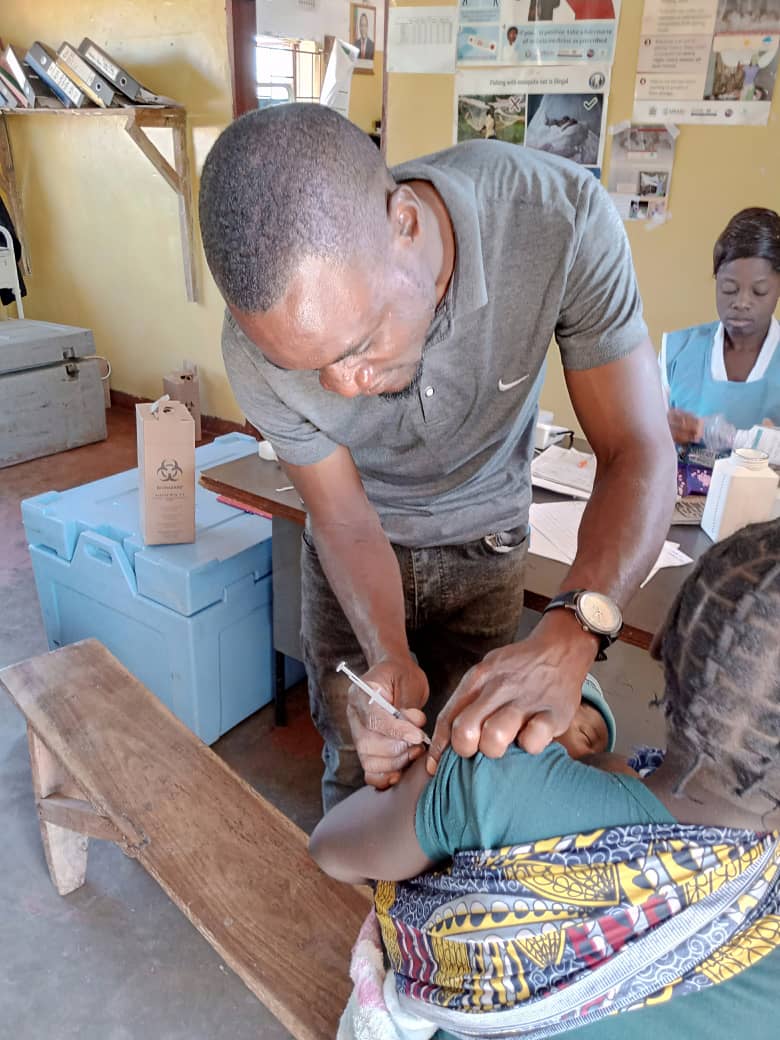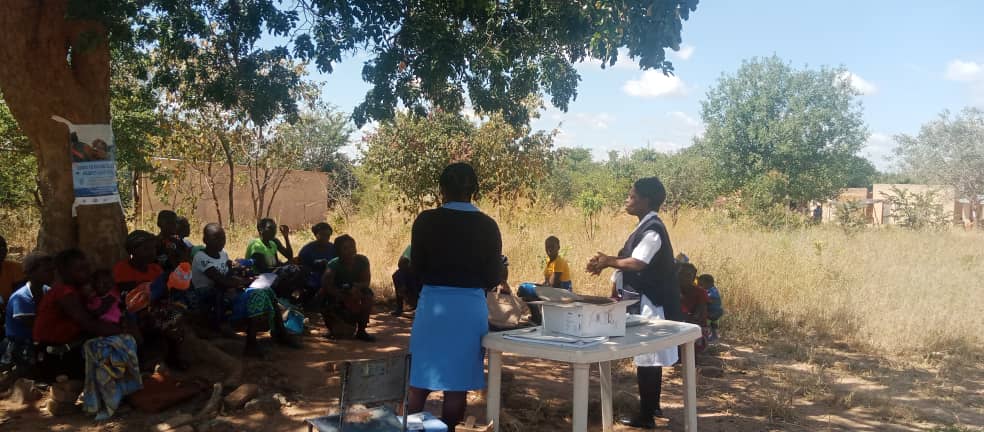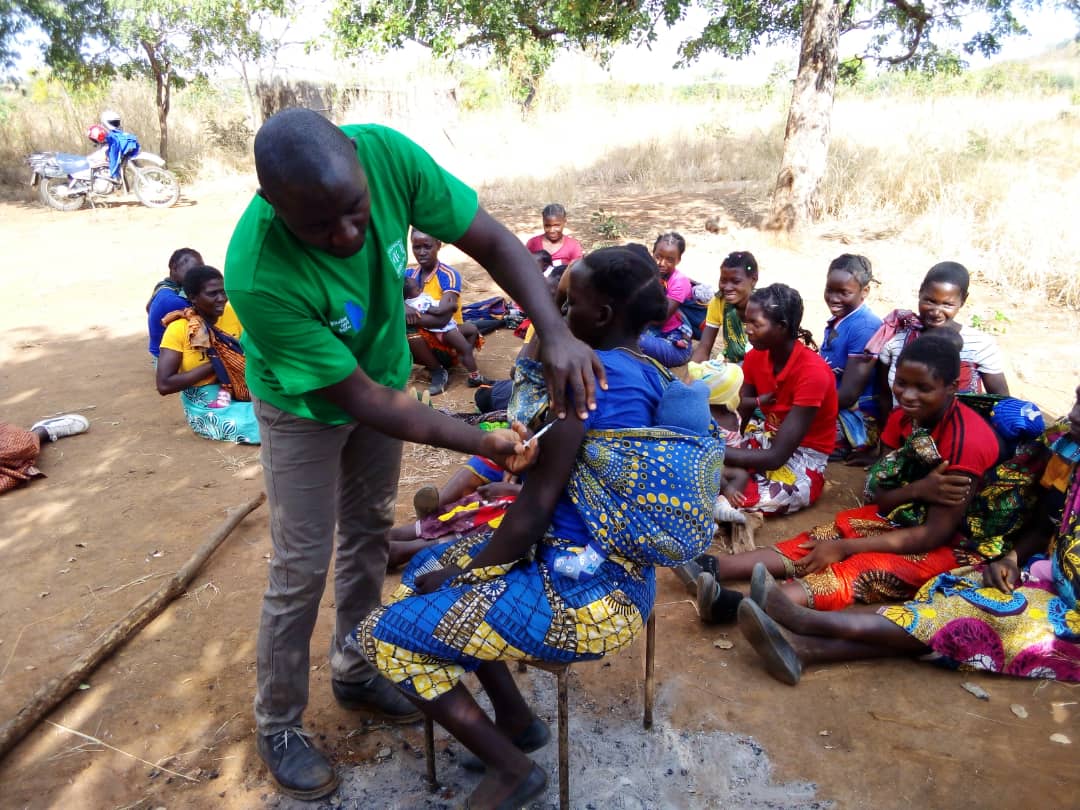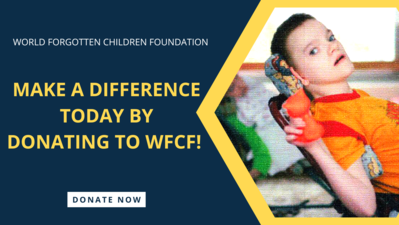 On January 13, 2023, World Forgotten Children Foundation (WFCF) funded $4,000 USD to Kocebuka Community Foundation (KCF)’s efforts aimed at immediate COVID-19 information dissemination, vaccination, and behavior change communication in the rural communities of Zambia.
On January 13, 2023, World Forgotten Children Foundation (WFCF) funded $4,000 USD to Kocebuka Community Foundation (KCF)’s efforts aimed at immediate COVID-19 information dissemination, vaccination, and behavior change communication in the rural communities of Zambia.
Background
In the early months of 2020, the world witnessed the emergence of COVID-19, a formidable challenge that exposed vulnerabilities in health systems and communities.
Zambia, like many other nations, faced a sudden and overwhelming standstill as daily cases spiked, and the disease crippled the world. Life shuddered to a halt – offices closed, movements ceased, schools and churches emptied, and markets were deserted. In the face of an unprecedented health crisis, tireless efforts by the scientific community began generating information on COVID-19 transmission routes.
As information found its way through traditional media and social platforms, it became apparent that rural communities in Zambia, detached from technology and media, were left grappling with increasing vulnerability due to inadequate access to life-saving information.
Taking Action and Seeking Assistance
Recognizing the urgency to address this disparity, KCF stepped into action. Working within rural communities, KCF provided ongoing awareness education through volunteers, targeting families that had gone into social isolation. The entrenched cultural and traditional practices in these areas presented a precarious situation in the sustained fight against COVID-19.
However, when COVID-19 vaccinations became available, the urban-rural gap widened. Rural communities continued to lean into misinformation, lacking access to both balanced information and vaccines. Many of these communities remained inaccessible during the rainy season and throughout the year.
In response to this pressing need, KCF, in collaboration with local government, ministries, education boards, and WFCF, initiated a project aimed at immediate COVID-19 information dissemination, vaccination, and behavior change communication in Zambia.

The project implementation occurred in two phases. The first phase involved community sensitizations, education, awareness, and mobilization for vaccination. Zonal schools were targeted, and expert talk presentations were delivered by health workers. The second phase saw intensive vaccinations across six communities, resulting in 1,613 children and 2,618 adults being vaccinated.
The Remarkable Outcomes

The overall district vaccination coverage increased from the 45% baseline as of November 2022 to 67%, marking a remarkable 22% increase over the period. This progress was achieved despite widespread apathy across the district.
The massive community awareness, education, and sensitization efforts, facilitated by the distribution of Information, Education and Communication (IEC) materials in the local language, led to progressive behavior adjustment and knowledge application. While a significant gap still exists in securing rural communities against the threat of COVID-19, sustainable community activism and prevention awareness has been raised.
Through this intervention, community attitude and vaccine uptake have increased, providing communities that were previously unable to access vaccines due to distance with an opportunity to do so. KCF maintains that the support from the WFCF was critical to the success of the project, enabling the reproduction of 3,000 pieces of IEC materials, providing fuel, and staff allowances during the campaign.
Overall, the project's success rating currently stands at over 60%, and post-project impact is still being monitored. The collaboration between WFCF and KCF showcases the positive impact that can be achieved when organizations come together to address critical needs in vulnerable communities.
Support the World Forgotten Children Foundation

The mission of WFCF supports projects that support children in developing countries. Make a Donation today to build a world where no child is left behind.


